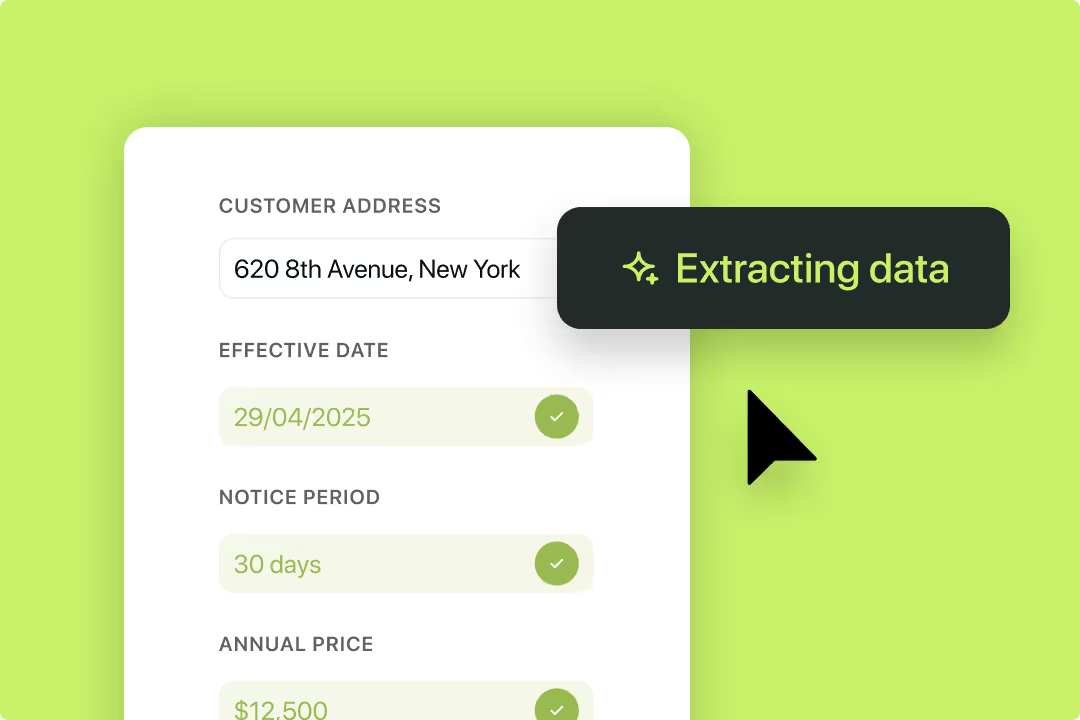Solutions
Customer Support
Resources
Third-party contracts can be a real pain for legal and business teams.
But what if we told you that third-party contracts didn’t need to create a bottleneck?
After reading this article, you’ll feel equipped to quickly and confidently review and manage contracts on your counterparties’ paper. And the rest of the business will thank you for it.
Also known as a third-party paper, a third-party contract is a legal agreement that originates with the counterparty, and so follows their templates, structure and provisions instead of your own.
In other words, the agreement won’t be initiated by your legal team, but by theirs.
Some lawyers liken a third-party contract to playing a sport away at the other team’s ground. In many ways, they’re right.
When you initiate a contract yourself, you’re much more familiar with the provisions and arguments used. Meanwhile, third-party contracts take away this familiarity and advantage, leaving you playing on foreign turf.

Typically, the party that makes an offer to provide their goods or services will be the party that creates the contract, and the counterparty will review and eventually accept these terms. Think supplier or vendor agreements, for example.
This means that if you are the ‘other party’ and are receiving access to a product or service, you’ll be on the other end of a third-party contract, instead of initiating it yourself.
For those not familiar with the legal industry, the idea of the other party drafting up the contract can seem great because you won’t have to spend time writing a contract.
However, this couldn’t be further from the truth, and most legal teams would much prefer to own the contract, and its terms, themselves.
There are a few reasons for this:
One of the biggest concerns when managing a third party contract is that your business might gain less value from a transaction than they would have if the contract was initiated by yourselves instead.
In fact, PWC claims that poor management of third-party contracts can result in financial losses alongside reputational damage and unexpected liability.
The reasons behind this risk are obvious, as the counterparty will have proposed their own terms within the contract, and these will almost always favour the third party’s interests over yours.
Unfortunately, departing from these terms within negotiations can be a real challenge, particularly if the original terms are particularly harsh.
Third-party paper also takes a lot longer to review than contracts you create yourself, as your legal team will need to go through the agreement with a fine-toothed comb to find any unfavourable terms, craftily worded clauses and gaps in the provisions.
You might find numerous terms that need to be negotiated in a third party contract, and this can be a real pain point for legal teams that have a manual contract workflow and need to go back and forth over email to reach an agreement.
This time spent negotiating contracts can often lead to a long delay in getting contracts over the line, and it can consume large amounts of legal’s time that could be better spent on high-value work.
There’s an increasing desire to digitize and extract data from contracts in scaling businesses, and this wealth of data is used to more effectively negotiate contracts, project revenue and speed up the contracting process.
When you initiate the contract yourself through a contract management software, for example, this data collection is often seamless, with contract metadata captured by default.
However, third-party contracts make this increasingly difficult to do, since they are often delivered in a completely different format to the contracts you’d usually query and audit, and the data within them remains static.
Fortunately, that won’t be the end state for most businesses today, because the next generation of contract lifecycle management software makes processing third-party contracts - and the data within them - seamless. Let’s explore this in more detail now.
Juro doesn’t just support third-party contracts, it also empowers you to unlock the key data points within them and process them faster.
You can simply upload your third-party paper and let Juro’s AI Extract functionality do the heavy lifting. AI Extract will automatically tag all of your key datapoints, based on simple prompts you set up for these types of agreements.
But it doesn’t stop there. Juro's powerful AI can calculate dates and automatically set renewal reminders, as well as summarize contracts and flag risks.
With data extracted by AI, you're free to query your contract data however you want, enabling better decisions for your business, reduced review times, and increased visibility for vendor contracts.
{{quote1}}
With AI Extract, it's never been easier to unlock valuable insights from supplier and vendor agreements. You can:
To see these workflows in action and discuss how Juro's AI Extract functionality can transform third-party contracting to your business, hit the button below for a personalized demo.

One of the most important steps to take when reviewing any third party contract is to prepare an internal process beforehand, and ensure that it’s fit for purpose.
Depending on the type of business contract involved and how valuable it is, this internal process may vary. However, all internal processes should outline who will be responsible for negotiating the contract, how it will be reviewed, and who will approve it. This system will ensure that the contract review process is far more efficient and structured.
Fortunately, you can establish a strong internal process using contract management tools that allows users to set up approval workflows and tag users at each stage, instead of emailing back and forth to delegate the duties.
Regardless of who is creating them, contracts function as a critical tool for building new relationships and expanding on existing ones, so it’s important to nurture these relationships - even in the negotiation process.
Luckily, there are few things that in-house legal teams can do to make the contract process more amicable and reduce friction. For example, you can:

In a third party contract, there will almost always be some points you will feel compelled to concede on, but aren’t completely happy about.
In these situations, it is always worth asking questions about these points before committing to them, as this can demonstrate your careful eye and ensure that your voice is heard - even on the other party’s paper.
For example, you may want to ask why certain clauses have been inserted, and how relevant they are likely to be in your relationship with the counterparty. Alternatively, if the language used is vague or potentially misleading, you should ask questions to clarify what it means and when it applies.
This means that even though the terms have been drafted by the other party, you have full understanding of what they mean and whether they should be used.
Playbooks have become a buzzword in business, but they are critical to ensuring that procedures are followed properly when reviewing and agreeing a third party contract, and that any risks have been minimized.
Whilst lots of businesses feel that they don’t have time to set up a contract playbook, the time that legal and business teams will waste without one is often far greater since playbooks are an effective way to enable commercial teams to self-serve with minimal input from legal.
Juro’s intelligent contract automation platform helps visionary legal counsel and the teams they enable to agree and manage contracts in one unified workspace - regardless of whose paper they’re on.

To see Juro in action and find out how it can transform the way your team agree and manage third-party contracts, fill in the form below for a personalized demo. To find out more about how Juro can support you with post-award contract management, check out this guide.
They’re most common when you’re buying goods or services — such as supplier agreements, vendor contracts, SaaS subscriptions, or consultancy agreements.
Using your own templates gives you control over risk allocation, commercial terms, and negotiation starting positions, reducing review time and value leakage.
Common risks include unfavorable liability caps, automatic renewals, hidden price increases, weak termination rights, and lack of visibility into key obligations.
Legal teams need to scrutinize unfamiliar structures and wording, identify deviations from internal standards, and negotiate changes — often across multiple versions and emails.
By using contract playbooks, standard approval workflows, clear negotiation guardrails, and CLM software that centralizes review and collaboration.
Contract value leakage happens when unclear or unfavorable terms lead to higher costs, missed rights, unplanned renewals, or weaker commercial outcomes.
AI can extract key data points, summarize terms, flag risks, calculate dates, and surface deviations from your playbook — dramatically reducing manual review effort.
Yes. Modern CLMs like Juro are designed to ingest third-party paper, extract metadata, enable negotiation, and manage obligations post-signature.
Centralize them in a single system, automate data extraction and reminders, use clear internal processes, and support teams with playbooks and AI-assisted review tools.
Lorem ipsum dolor sit amet, consectetur adipiscing elit. Suspendisse varius enim in eros elementum tristique. Duis cursus, mi quis viverra ornare, eros dolor interdum nulla, ut commodo diam libero vitae erat. Aenean faucibus nibh et justo cursus id rutrum lorem imperdiet. Nunc ut sem vitae risus tristique posuere.

